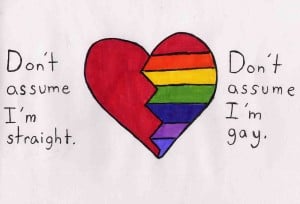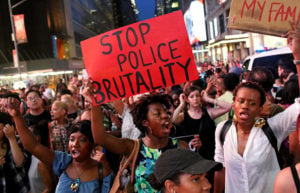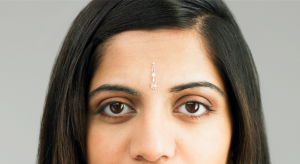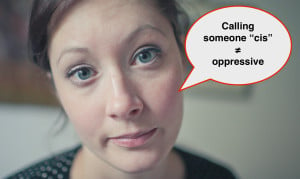
Person meditating at a desk in an office.
Self-care is the battle cry of our generation. It is a realization that—in order for us to be better activists, feminists, and friends—we have to take time out to check in with ourselves, heal wounds, and feel loved.
It is especially significant today as we socially, politically and culturally exist in a war with a goal of dismantling the white heteronormative patriarchy and achieve true human rights and equality.
Self-care is a testament to the ability to understand, nourish and identify with our complex, layered and ever-evolving selves. It is a self-centering decision to acknowledge, address and cater to our bodies needs—spiritually, emotionally, physically, mentally and more.
I’ve been intentionally practicing self-care for a few years now, first starting by cleaning and clearing my mind, evaluating friendships, and recognizing personality and relationship patterns.
But, more recently, I’ve been considering how to practice self-care in response to toxic or traumatizing experiences and environments.
As you’ve read in my last articles, working as a black woman in predominantly white offices can be mentally and emotionally exhausting.
While working on this series, I began thinking deeply about how women of color and marginalized identities can practice self-care when they find themselves in these environments.
When I felt alone, exhausted by microaggressions, or undervalued or frustrated at work, I developed a few self-care methods to cope:
- Arriving early to enjoy breakfast and a cup of tea in the silence of the office.
- Scheduling lunch or coffee dates with other people of color or employees I wanted to learn from.
- Going for walks or taking trips to the roof during my breaks.
- Planning trips, which gave me something to look forward to on long weekends or holidays.
Most significantly, I formed a group of close friends of different backgrounds and sexualities who gave me even more life. We held each other down, provided support and offered billions of laughs.
We validated each other when we endured daunting racist, sexist or ageist experiences at work and inspired one another to take on new projects or assert ourselves in our teams.
Most of all, we made each other feel less alone: we were reflections of each other that affirmed one another’s existence and importance.
I found that these remedies—especially my friends—guided me towards more positive outlooks and peace of mind, which, coincidentally, helped me refocus on what I was really passionate about: the work I was doing, and the next chapters in my career.
Practicing self-care at work, or in response to issues at work, can be the difference between feeling hopeless and isolated or inspired and optimistic. It can help you refocus and realize what you value in your work experience and how to obtain it.
While writing this, I realized that not everyone has access to these self-care solutions and even less may have strong friend connections at work. So I wanted to explore different steps that people can take to care for themselves and make a difference in their communities. Here are four of them:
1. Engage in passions and projects that reaffirm your greatness.
One of the best decisions I’ve made as a post-grad working girl is signing up for writing classes. As writing is what I do for a living, it can sometimes feel like a job and less like a passion.
Writing classes—especially creative writing ones—allow me to exercise my imagination and strengthen my talents as a writer. The result: empowerment and freedom.
Going to work can be that much more daunting and depressing if you’re not only experiencing microaggressions but on top of that, aren’t in love with your job.
For those whose work doesn’t align with their passions or whose job is for survival and not creative stimulation, participating in projects or activities outside of work can be instrumental to your emotional health and confidence.
For this reason, one of the keys to self-care lies in impressing yourself, harvesting your talents and energies into something that’s meaningful to you, and watching yourself excel.
It’s especially important for women of color, LGBTQIA+, people of different abilities and more, to find creative outlets that empower them and strengthens their skills and confidence.
It’s one step to being better leaders and more expressive and assertive professionals. It’s going after what you want and recognizing your power and potentials.
2. Find a mentor—or become one!
One of my long-term goals is to find a mentor who can help guide me on my professional journey. Ideally, I’d love for her to be a Black woman who works in media, who understands the challenges of having an intersectional identity in professional spaces and who’s learned to navigate these setbacks in exponential ways.
Of course, I’ve had several mentors of different genders and backgrounds who have assisted me personally and professionally, but I imagine a bond with a Black woman mentor would feel more personal and inspiring.
Mentorship is a transformative force in marginalized communities. Having a role model who looks like you and has achieved something you aspire to makes your dreams feel more possible, tangible.
If you’re able, I also encourage you to become a mentor. Being a mentor to someone else is just as important as having one of your own. It’s a small but significant way of giving back to your community and helping another person reach their potentials.
3. Organize meetings to address workplace microaggressions
It is no secret that women and people of color can experience microaggressions at work, ranging from someone inappropriately touching your hair to a male coworker belittling or ignoring your ideas.
The challenge, however, is addressing these issues in a healthy and productive way.
Sometimes, talking to your manager or privately confronting a coworker isn’t enough. And as a marginalized person, taking this action can feel like our jobs are at a greater risk than the person who inflicted the microaggression.
A coworker at my last job—a Black woman—took initiative by organizing inclusivity workshops for the whole company to attend. To be sure, this is not an easy responsibility, but the payoff can lead to productive conversations and greater awareness of office issues.
Meetings and workshops can also be safer alternatives to speaking to a superior or confronting an employee directly. It opens space for conversation without having to put yourself on the line.
If you do decide to organize a meeting, it could be a great opportunity to discuss how to make company culture safer and more welcoming for marginalized people and strategize inclusive hiring methods.
4. Start meetups for women of color.
Self-care can mean building community or actively surrounding yourself with people who nurture your soul.
This year, I co-founded a bimonthly brunch series for my friends of color, where we share food and engage in conversations about self-care and our lives.
It has been the highlight of my year: not only do I feel a stronger sense of community with women of color in my city, I’ve also gained a renewed sense of leadership, therapy, and event organizing.
I have a friend who engages in dinners for Black women in media. She says that some of the highlights of these dinners is the shared community of expressing work and career-related frustrations, as well as the casual networking.
Not only does she feel validated and comforted, she meets people she can possibly collaborate with in the future.
Organizing a dinner, brunch, book club or any other social gathering for your specific groups and identities is a great way to strengthen your bonds in those communities.
***
The suggestions above are meant to serve as methods to empower and excite you when you’re down about work or try to eradicate office microaggressions you may face. However, they are in no way meant to entirely resolve any unhappiness, unfulfillment or discriminations you may experience in response to your intersectional identity.
Things can get really tough and, if they do, I hope you are able to consider finding a new job or going the entrepreneurial route—maybe you’re meant to create or start something new within your field.
Ultimately, I am no expert on self-care—I’m just a passionate self-care enthusiast. But there are many people who do have expertise.
Originally, I hoped to interview Gianne Doherty, a wellness maven, for this story, but unfortunately did not get her reply in time. She recently held her first W.E.L.L. Summit: a convention promoting self-care and inclusivity amongst women of color.
There’s also Lauren Ash of the Black Girl in Om podcast and initiative, who frequently discusses the importance of women of color practicing and implementing self-care into their daily lives.
Ash and Doherty are two wonderful resources who inspire me to use self-care as an innovative and personal form of resistance during these trying political and cultural times.
I hope you’re able to find peace and comfort—whether through my advice and others’—especially in the one place where all you want to do is make money, or make a difference. After all, negative vibes and oppressive forces should never get in the way of stacking your paper.
[do_widget id=’text-101′]
Alisha Acquaye is an Everyday Feminism Reporting Fellow. Alisha is a Brooklyn-born writer, tea enthusiast, and lipstick babe who loves creating all-natural potions for her hair and body. Her writing focuses on race, gender, body, beauty, social issues and pop culture. You can find her work in Elle, The Establishment, Teen Vogue, and OkayAfrica. She’s low-key obsessed with Trader Joe’s, Chopped, and creating Spotify playlists.
Search our 3000+ articles!
Read our articles about:
Our online racial justice training
Used by hundreds of universities, non-profits, and businesses.
Click to learn more
Most Read Articles
- « Previous
- 1
- …
- 30
- 31
- 32



















